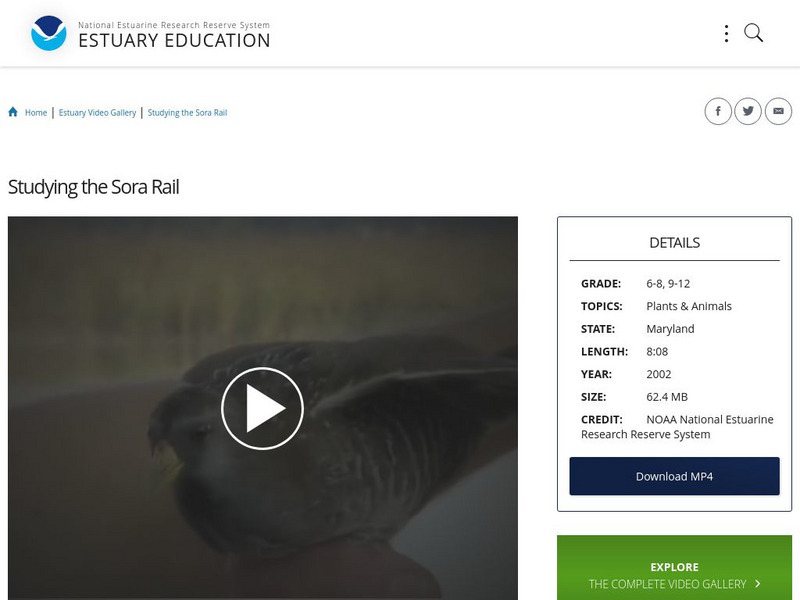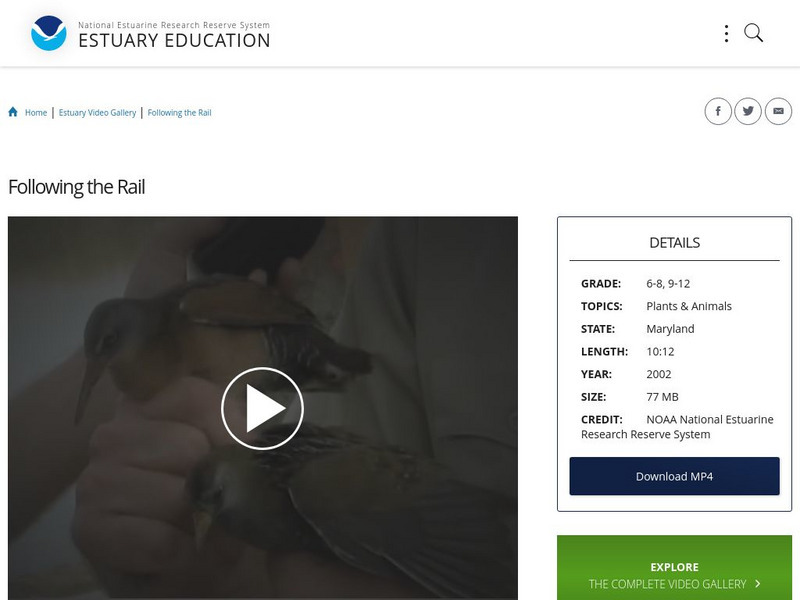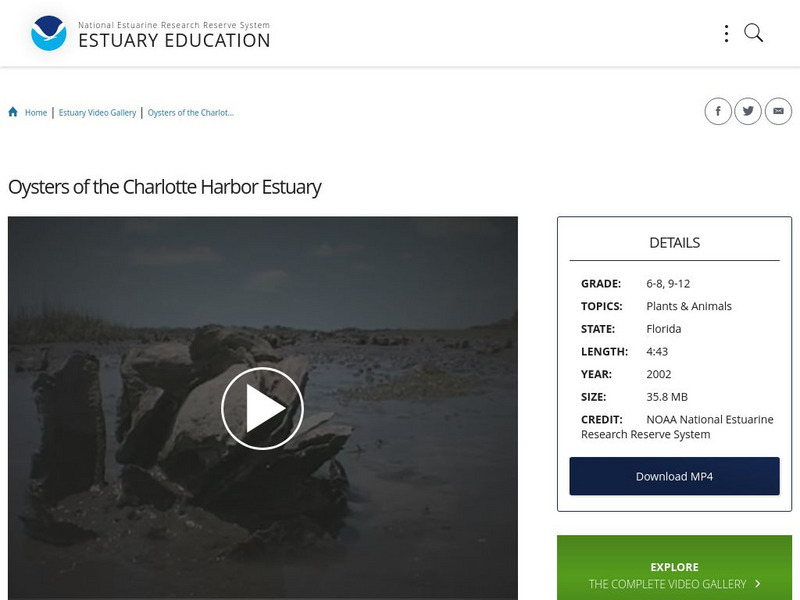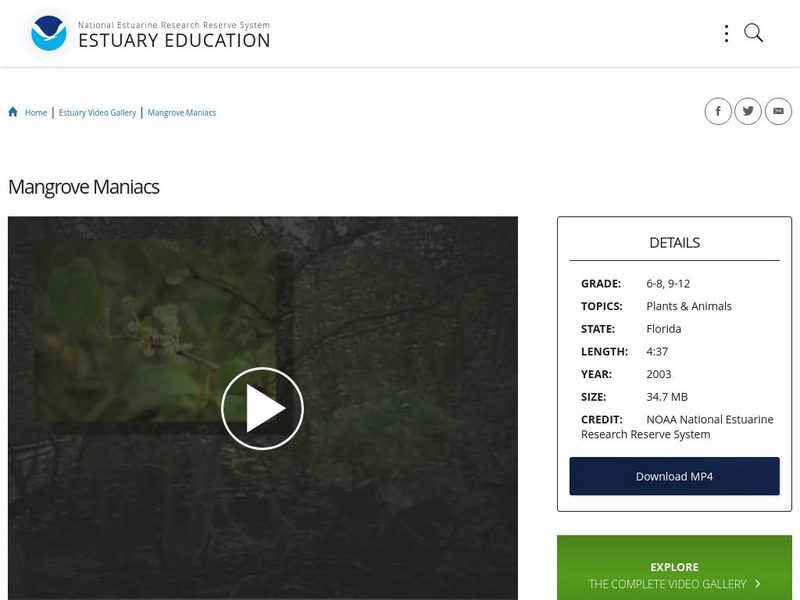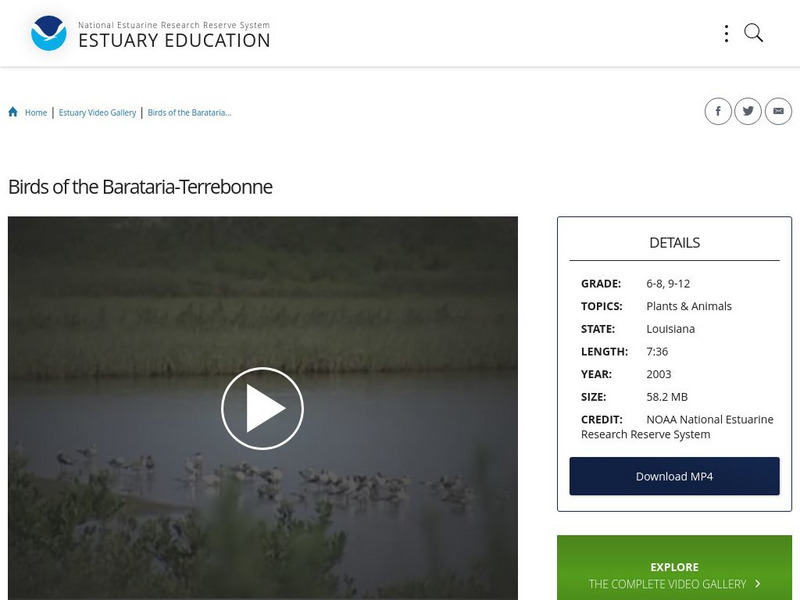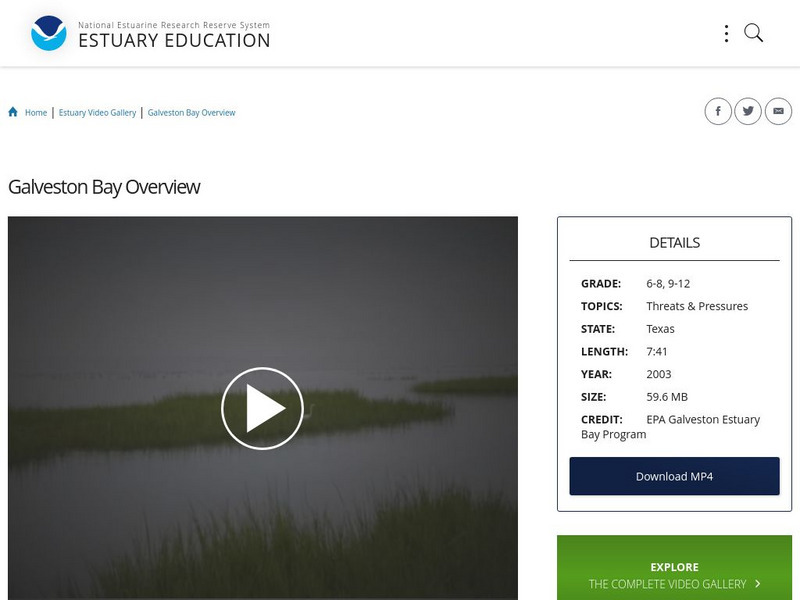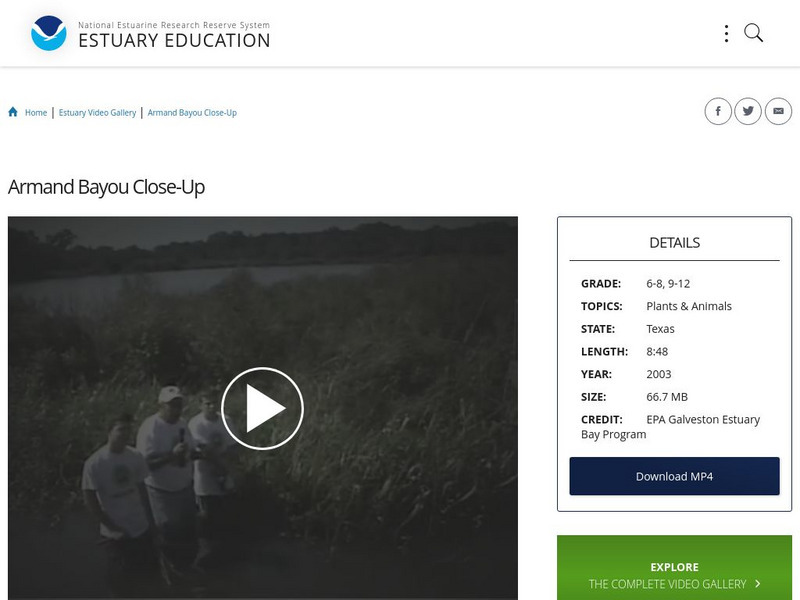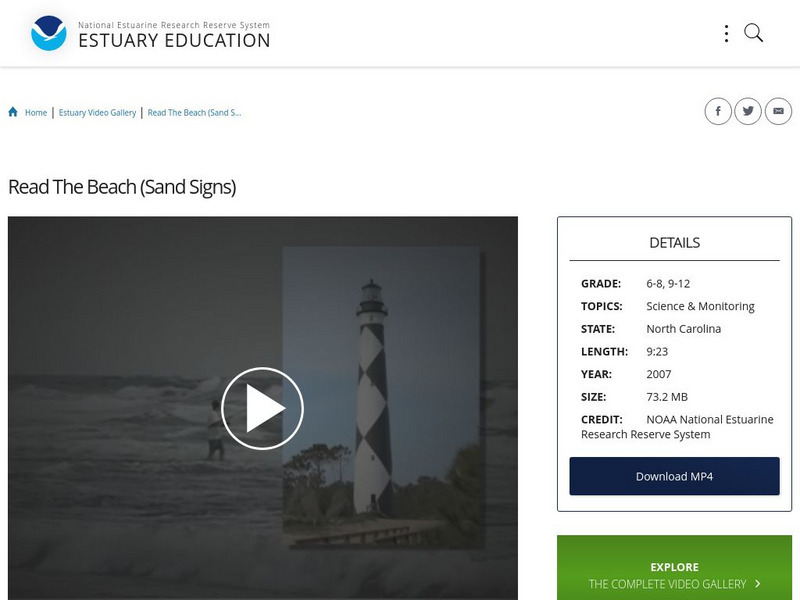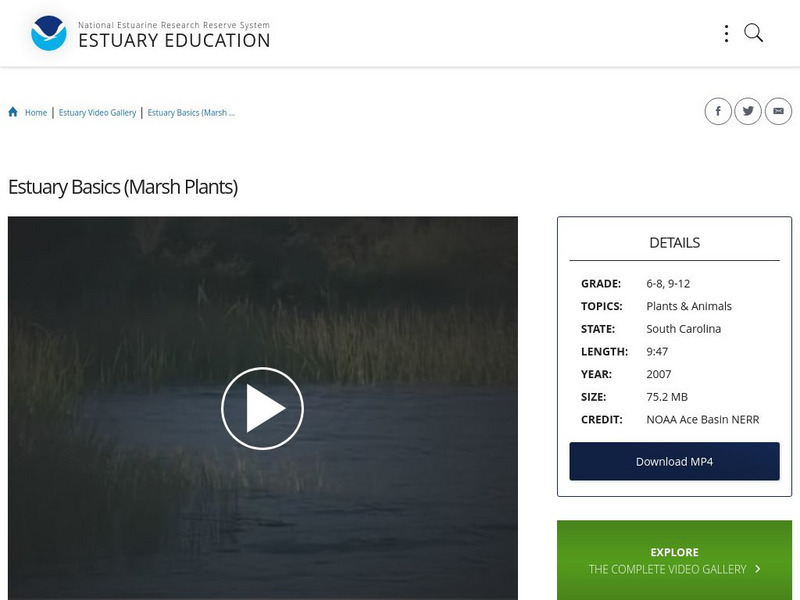Hi, what do you want to do?
NOAA
Noaa: Estuary Education: New Jersey Terrapin Close Up
Find out about the importance of the estuary ecosystem, and the terrapins' relationship with these special wetlands. [4:46]
NOAA
Noaa: Estuary Education: Totally Turtles
Meet scientists and students at the Jug Bay Reserve in Maryland as they study and track the common Box Turtle. [7:25]
NOAA
Noaa: Estuary Education: Tracking Turtles
Learn how scientists track turtles and other research subjects using radio transmitter technology [3:56]
NOAA
Noaa: Estuary Education: Studying the Sora Rail
Have you heard the expression "skinny as a rail?" Learn where it originated and much more about this unusual bird, the Sora Rail. [8:05]
NOAA
Noaa: Estuary Education: Following the Rail
Learn how scientists track the Sora Rail, a unique bird that depends on the estuary to fuel up for lengthy migrations up and down the Atlantic Coast. [10:00]
NOAA
Noaa: Estuary Education: Estuaries and the First Peoples
Learn how the Charlotte Harbor estuary served as nature's supermarket for the native Calusa people. [3:39]
NOAA
Noaa: Estuary Education: Collecting Creatures in the Charlotte Harbor
Students collect and display some of the most common creatures found in the Charlotte Harbor Estuary. [3:52]
NOAA
Noaa: Estuary Education: Oysters of the Charlotte Harbor Estuary
Meet an oyster expert and learn about the history and economic value of the oyster in the Charlotte Harbor Estuary. [4:39]
NOAA
Noaa: Estuary Education: Interview With the Manatee
Here's your chance to interview the manatee, a marine mammal that finds safety and sustenance in the estuary. [6:55]
NOAA
Noaa: Estuary Education: Mangrove Maniacs
Learn about the life cycle and seed dispersal methods of mangrove plants found in Florida. Understand why these plants are important in the estuary. [4:32]
NOAA
Noaa: Estuary Education: Mangrove Q&a
Scientists answer student questions about mangroves and why these plants are a keystone species in Florida's estuaries. [7:06]
NOAA
Noaa: Estuary Education: Carnivorous Plants
Visit a beautiful bog in the Weeks Bay Reserve in Alabama, home to a variety of carnivorous plants. [10:03]
NOAA
Noaa: Estuary Education: American Alligator
Meet the American Alligator, a resident of the Lousiana estuary, and learn the secrets of this misunderstood creature. [4:55]
NOAA
Noaa: Estuary Education: Birds of the Barataria Terrebonne
Catch a glimpse of several species of birds found in the Barataria-Terrebonne estuary in Louisiana. [7:32]
NOAA
Noaa: Estuary Education: Creatures of Brackish Water
Find out how the salt composition in the waters of the estuary affects the organisms living there. [7:44]
NOAA
Noaa: Estuary Education: Galveston Bay Overview
A quick overview of the importance of estuary conservation in Galveston Bay with Helen Drummond, director of the Galveston Bay Estuary Program. [7:41]
NOAA
Noaa: Estuary Education: Watersheds of Galveston Bay
Meet a soil conservationist known as the Dirt Doctor, and learn about the function of the watersheds of the Galveston Bay. [7:23]
NOAA
Noaa: Estuary Education: Texas Alligators Q&a
Students ask questions about the American Alligator, and an Armand Bayou Nature Center scientist provides answers. [3:06]
NOAA
Noaa: Estuary Education: Armand Bayou Close Up
Get wet and muddy with scientist Eddie Seidensticker as he and two students take an up-close look at the plants of Armand Bayou in Texas. [8:42]
NOAA
Noaa: Estuary Education: Lionfish: Estuary Invaders?
Invasive species can disrupt an environment. Lionfish, native to the Indian and Pacific Oceans, are showing up off the East Coast of the United States. What problems will these Estuary Invaders bring? [9:14]
NOAA
Noaa: Estuary Education: Phytoplankton
Young students learn about plankton (in particular phytoplankton) and why it is vital to life on this planet. [9:59]
NOAA
Noaa: Estuary Education: Read the Beach (Sand Signs)
A scientist teaches students how to gather evidence and make scientific inferences about the beach just by looking at the sand. [9:23]
NOAA
Noaa: Estuary Education: Read the Beach (Sand Science)
Geologist Dr. Jeff Warren shows how the beach is built and performs a "fizzy" experiment with beach sand to show evidence of its physical and chemical composition. [8:14]
NOAA
Noaa: Estuary Education: Estuary Basics (Marsh Plants)
Meet scientist Saundra Upchurch of the Ace Basin Reserve and learn about the marsh plants of South Carolina's "Low Country." [9:43]








